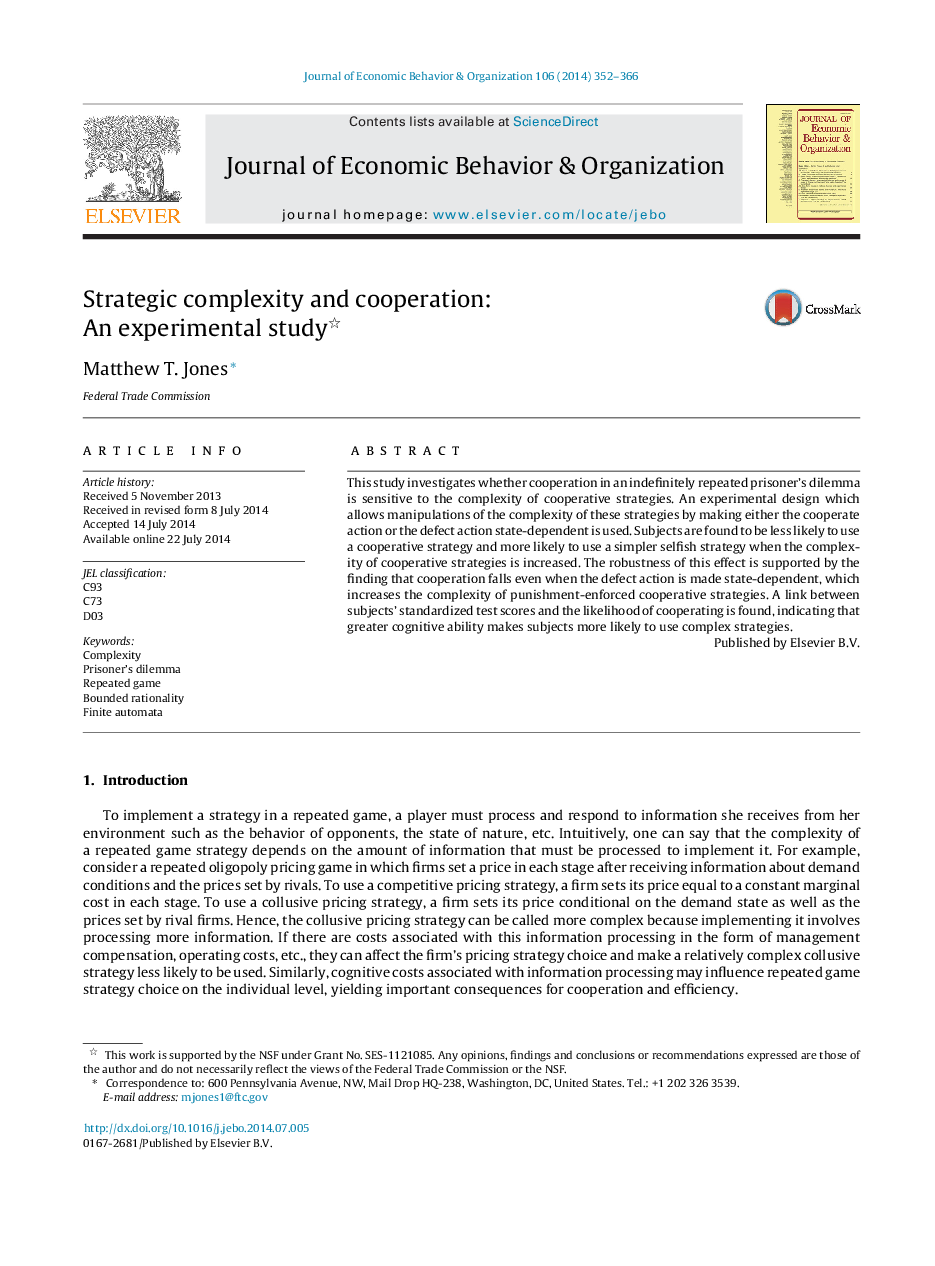| Article ID | Journal | Published Year | Pages | File Type |
|---|---|---|---|---|
| 7243499 | Journal of Economic Behavior & Organization | 2014 | 15 Pages |
Abstract
This study investigates whether cooperation in an indefinitely repeated prisoner's dilemma is sensitive to the complexity of cooperative strategies. An experimental design which allows manipulations of the complexity of these strategies by making either the cooperate action or the defect action state-dependent is used. Subjects are found to be less likely to use a cooperative strategy and more likely to use a simpler selfish strategy when the complexity of cooperative strategies is increased. The robustness of this effect is supported by the finding that cooperation falls even when the defect action is made state-dependent, which increases the complexity of punishment-enforced cooperative strategies. A link between subjects' standardized test scores and the likelihood of cooperating is found, indicating that greater cognitive ability makes subjects more likely to use complex strategies.
Related Topics
Social Sciences and Humanities
Economics, Econometrics and Finance
Economics and Econometrics
Authors
Matthew T. Jones,
